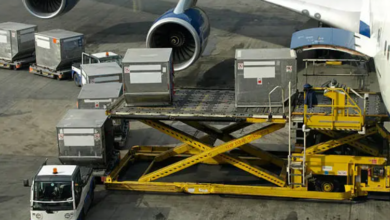6 Types of Insurance Every Trade Contractor Should Know

Trade contractors face a range of risks every day. From heavy machinery to job site hazards, the stakes are high. One accident or mistake can lead to costly claims. Proper insurance protects both the business and its reputation. Choosing the right coverage can mean the difference between a quick claim resolution and a financial setback. This article breaks down six essential insurance types tailored to the needs of electricians, plumbers, carpenters, and other trade professionals.
1. General Liability Coverage
General liability insurance is the foundation of any contractor’s risk plan. It protects against claims of bodily injury or property damage caused by work operations. When a client visits a job site and trips, or when a tool falls and breaks a neighbor’s window, this policy covers medical bills and repair costs. It also handles legal fees and settlements if a claim goes to court. Policies can be tailored to include specific operations, like roofing or excavation. Limits and deductibles should match project sizes and client requirements.
2. Workers’ Compensation Essentials
Trade work can be physically demanding and risky. Workers’ compensation covers medical care and lost wages when an employee is hurt on the job. It also shields the business from employee lawsuits over workplace injuries. In many states, carrying this coverage is mandatory once a contractor hires staff. Rates depend on payroll size and job risk classification. For example, welder rates differ from office staff rates. Quick claims handling and return-to-work programs help injured workers recover while keeping costs in check.
See also: Big Data vs. Business Intelligence: What’s the Difference and Why It Matters
3. Equipment and Tools Protection
Tools and machines are a contractor’s lifeline. Replacing a stolen or damaged backhoe or sets of power tools can drain cash fast. Equipment insurance covers the repair or replacement of owned or rented gear. It also steps in for theft, vandalism, or even on-job damage. Coverage can extend to gear stored in vehicles or locked storage yards. Policies may offer agreed-value or actual cash-value payouts, so equipment valuations must be accurate. Scheduling high-value items and listing serial numbers ensures smooth claims.
4. Commercial Auto Insurance Needs
Company vehicles are on the road day and night. Accidents, weather damage, or theft can all sideline trucks and vans. Commercial auto insurance covers vehicle damage and liability if drivers cause injuries or property damage. It also handles medical payments and uninsured motorist claims. Policies can include collision, comprehensive, and roadside assistance. For fleets with multiple vehicles, higher limits, and fleet discounts may apply. Accurate driver records and regular vehicle maintenance drive rates down. Telematics or GPS tracking can further cut premiums by promoting safe driving habits.
5. Professional Liability Safeguards
Even skilled trades involve design and planning. An electrical layout error or a miscalculated load in a structural beam can lead to costly fixes. Professional liability insurance (errors and omissions) protects against claims of negligence, errors, or omissions in professional services. It covers legal defense costs and settlements if a mistake causes financial loss to a client. This policy fills gaps left by general liability, which won’t cover design or planning errors. Architects, engineers, and contractors offering design-build services often need this coverage.
6. Business Package and Property Policies
Trade contractors often manage offices, warehouses, and storage yards in addition to job sites. Protecting these fixed assets is crucial. A business owner’s policy insurance combines property coverage with general liability at a lower combined rate. It covers buildings, office contents, materials, and even loss of income due to a covered event, like a fire. Equipment breakdown add-ons handle HVAC and electrical failures in the office. Crime protection can guard against employee theft or burglary at the shop. Tailoring a BOP to include inland marine insurance ensures materials in transit are also covered.
Conclusion
Trade contractors juggle complex projects under varied conditions. From on-site injuries to vehicle accidents and design mishaps, risks are ever-present. The right mix of general liability, workers’ comp, equipment, auto, professional liability, and package policies transforms those risks into manageable costs. Each coverage targets a specific threat, yet together, they form a unified defense. Reviewing policies annually and adjusting limits or add-ons as the business grows ensures continued protection. With a solid insurance plan in place, trade professionals can focus on craftsmanship, customer satisfaction, and sustainable growth—knowing that unexpected setbacks won’t stop progress.




